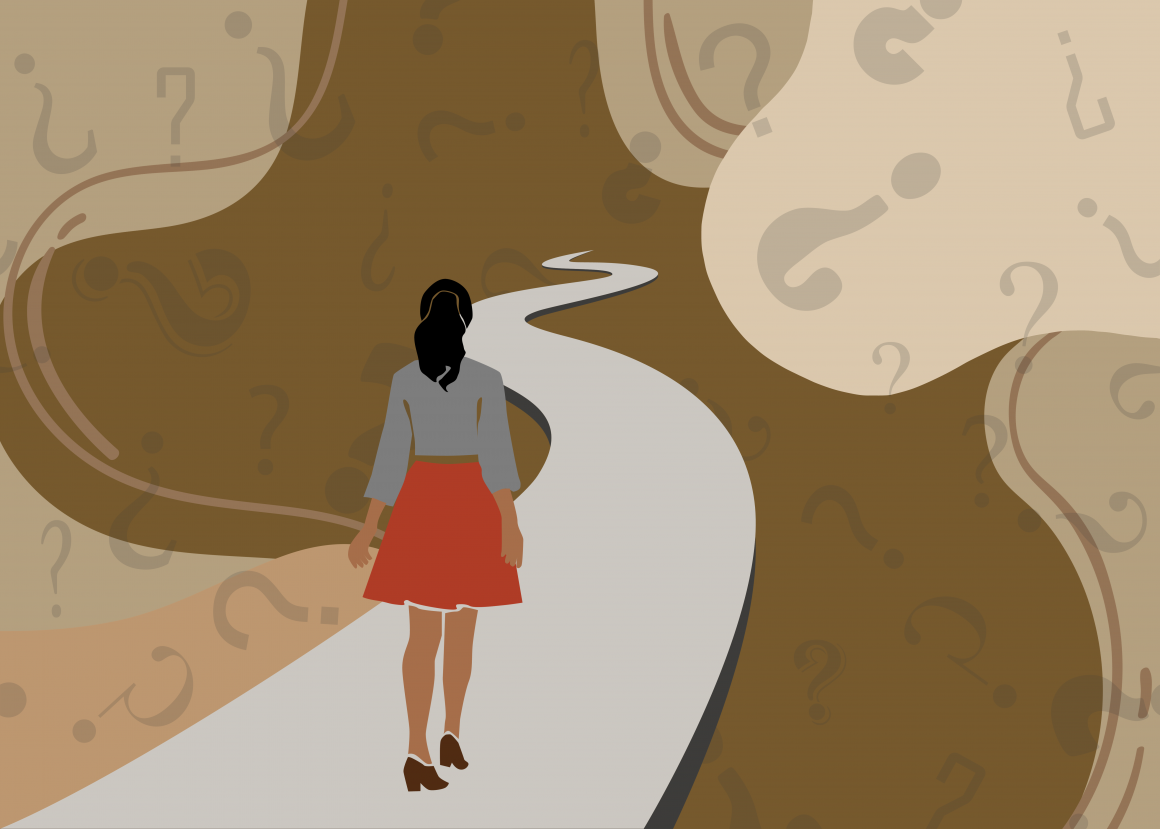
How experiencing racism in childhood changed the way I think
By Eda Kamal, November 10 2023—
When I was 12 or 13, my family drove to a mosque in an unfamiliar area. I was paying too much attention to the game on my phone to understand the context of the full situation, but I was broken out of the screen-induced trance by a woman yelling at my father in the parking lot through the car window. She was speaking loudly and slowly, in a condescending tone, telling my dad something about parking. Her sentences were short and simple, the way you’d give instructions to a toddler. As the conversation went on, and my parents tried to end the interaction, the woman grew more agitated.
The part I remember most about this situation is the woman throwing her hands in the air, saying “goddamn immigrants can’t understand English, go back to your own damn country” and walking away. This confused me more than anything — my father hadn’t been back to Pakistan since he was 18, completing a Bachelor’s and Master’s Degree in the United Kingdom fully in English. My mother also went to college for some time in Canada and spoke without a hint of an accent. I was ahead of the advanced students in the grade above me in English. The reason the woman did not understand our English is because she did not give my parents a chance to speak, constantly yelling over them. Internally, I blamed our skin colour (and the fact we were going to the mosque) for the tension of this interaction. In my mind, if this were a church parking lot, our skin was lighter and our hair was auburn, none of this would have happened.
In kindergarten, I was told by a fellow five-year-old that my skin looked dirty. Would this be an example of racism, of my five-year-old peers’ prejudice? Perhaps indirectly, as the child’s parents or other influences would have played a role in their reaction to my skin colour. As a child and teenager, I found it difficult to blame prejudice on the individuals who perpetrated it — I considered it the fault of external influences and systemic issues that make perpetrators victims of a larger problem. As a young adult, I find myself reflecting upon this assumption, wondering if it is more multifaceted than I previously thought.
For a period of time in elementary school, I was the only South Asian kid. There were some Black students, some East Asian and some Hispanic, but the majority of the student (and teacher, for that matter) population was white. When I was about ten, I recall being asked by a peer if I could speak Spanish. Perhaps it was the dreaded Dora haircut all Brown girls were subject to that suggested I could, but alas, I couldn’t. The other child remarked that I looked Mexican or South American because I had brown skin. I explained that my parents came from Pakistan, and their response was an almost disturbed “Oh!” as if I had told them I was an undercover spy or something. I don’t think it mattered too much to her after the fact, but that interaction has always stood out to me as strange. I wouldn’t describe it as racist, exactly — we were both children, and it wouldn’t have been their fault for making assumptions when they had never encountered someone of my heritage before.
Since this interaction, when I am asked where I am from out of the blue, it takes me a moment to assess what the other person means. Are they referring to my place of birth, Canada? Are they curious about my heritage, and where my parents are from? Or are they asking why the colour of my skin differs from theirs, despite us both standing on the same land? With a lack of context, I usually answer all of these questions to cover the most ground — I was born here, but my parents immigrated from Pakistan. The question is almost never asked to offend or harass me — and I must admit I have asked it too, out of sheer curiosity. Immediately after it exits my mouth, though, I am struck by the awkwardness I face when I am the subject of the question.
“Sorry, that’s a weird question. I’m just curious. I’m from…”
Curiosity isn’t a crime, and neither is being raised by influences that fail to acknowledge one’s privileges and differences. However, stating “we are all equal” in elementary school did nothing to prevent the loneliness I felt or the self-loathing I experienced. It did nothing to prevent my peers from perpetrating and experiencing racism, even when they did not know any better. The woman in the parking lot was old enough to know better. I was old enough to feel deeply hurt, and I was decades younger than her.
Deconstructing racism in individuals differs from solving the societal systemic issue — although it takes just as much effort if not more. I am now able to look into the eyes that I once wished were any other colour and see a soul undefined by the colour of the body it inhabits.
This article is a part of our Voices section and does not necessarily reflect the views of the Gauntlet editorial board.
